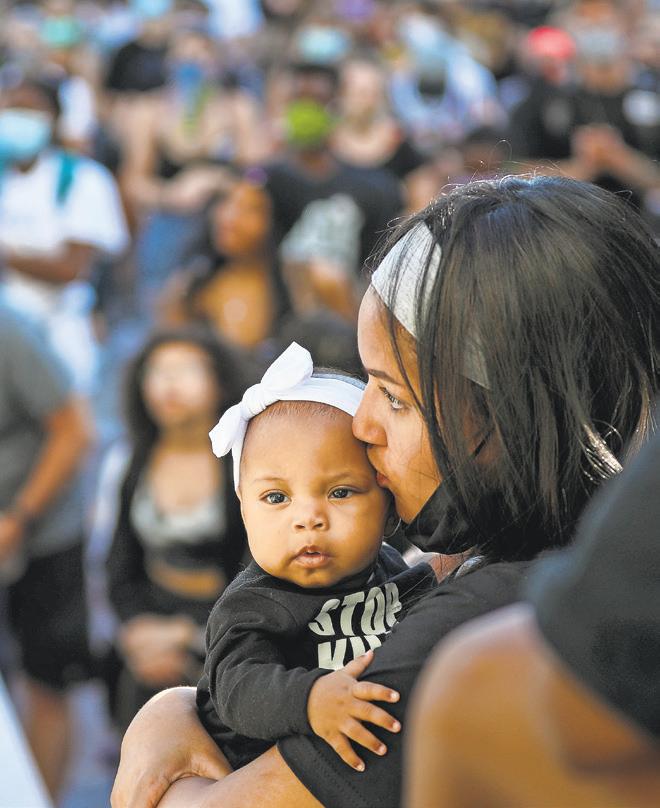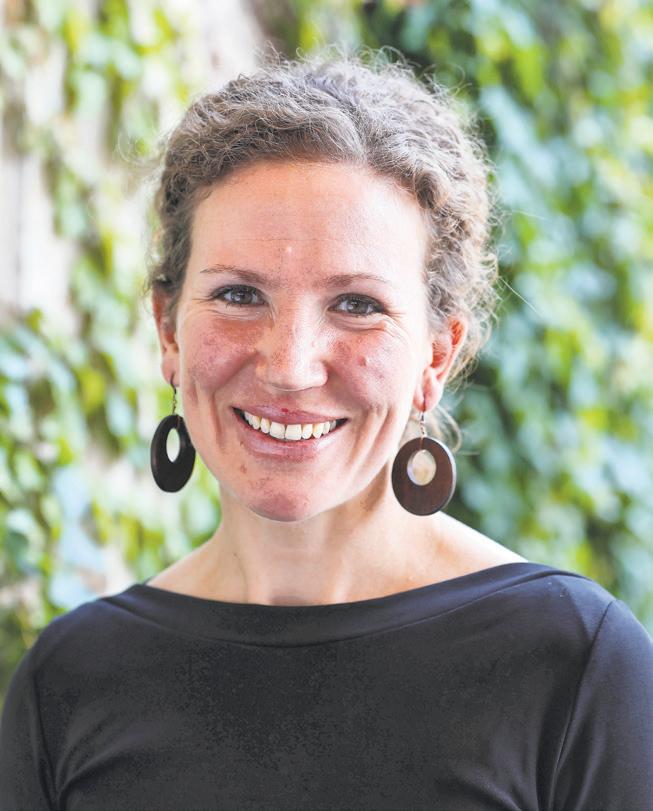
3 minute read
WENDY ANDERSON 39,
How do you spend your free time?
What is “free time”? I’m joking, but I think the way that I think of free time has changed so much since having kids, working, and now trying to do both at the same time at home with the pandemic. Even before the pandemic, free time doesn’t really exist in the same way that it used to, because I rarely have a chunk of time or a day where I can just do whatever I want to.
Most of the time my family and I are exploring outside, either at
Duluth
one of the beaches, or out on a trail in the woods somewhere. No matter how many times we’ve gone somewhere, we always find something new. My kids are at the age where they are very active and curious, so that is the perfect combination to keep exploring this extraordinary place we live in. When I can get away on my own, I’ve been able to get into running most of the year. I have never considered myself a runner, but in
ANDERSON: Page18 the last few years I’ve trained for a few half-marathons and other shorter races with some really good friends. This past year I ran with a local training group, which was such a fantastic and motivating experience. I’m definitely not very fast and probably won’t try for anything longer than a half, but I love running outside and being part of a supportive community of people who are there to challenge themselves for lots of different reasons.
Someday I think it would be cool to read a book in a hammock all day. Maybe I’ll do that in about 10 years.
Tell us about an influential person in your life.
My dad. He was a scholar on world religion and spent his life engaged in service to the community, both in his profession and in his free time. He was deeply concerned about social justice issues and often engaged us in discussions about issues and took me to events in the community, so that obviously influenced my career path. He really was a true intellectual and loved to read and write.
After he retired, he could often be found reading, highlighting passages in books on science and religion and climate change. He had several ideas for books he wanted to write. He was incredibly patient and had a very kind and gentle demeanor.
He battled Parkinson’s disease for the last 11 years of his life, but he still retained all of his core qualities even when the disease progressed, and his body and mind didn’t allow him to outwardly express himself as easily. My mom was the love of his life and that was so apparent in the way they cared for each other. They would have been married for 50 years in 2018, the year he died.
Where is your favorite place in Duluth/Superior?
I can’t choose one. Hartley is probably my favorite place for trails and woods. And Lake Superior, really anywhere next to, on, or in it. Lake Superior is a big part of what drew us to this area. I lived in the Upper Peninsula of Michigan for a few years growing up and ever since then, I’ve felt a deep sense of connection to the lake and have always longed to be close to it again.
What have you learned in your time spent at home during the pandemic?
I’ve learned that I am at my best when I can have some sort of separation between my work and home life. And I’m sure most people would say that, but I’ve always tried really hard to balance and create space for the two separately. And obviously the pandemic has made that impossible. Working families are being crushed right now because we already didn’t have enough support in place to allow parents to be able to prioritize the health and safety of themselves or their kids.
And that’s, of course, much worse for families who are working in front-line jobs, jobs where they can’t afford to take time off or have benefits, or who lost their jobs. And there are so many who are just struggling so deeply and I don’t think we even know the true extent of that right now.
This pandemic is only uncovering the existing gaps in our systems to really support people at the most basic level and especially the ways in which systemic racism affords privilege to white folks over Black, Indigenous and communities of color. And over time, all of this has a cumulative effect and contributes to preexisting chronic health conditions.
That’s why we are seeing such disproportionate negative impact on communities of color and I think as a society we’re going to continue to grapple with the deep effects of this for a very long time.









